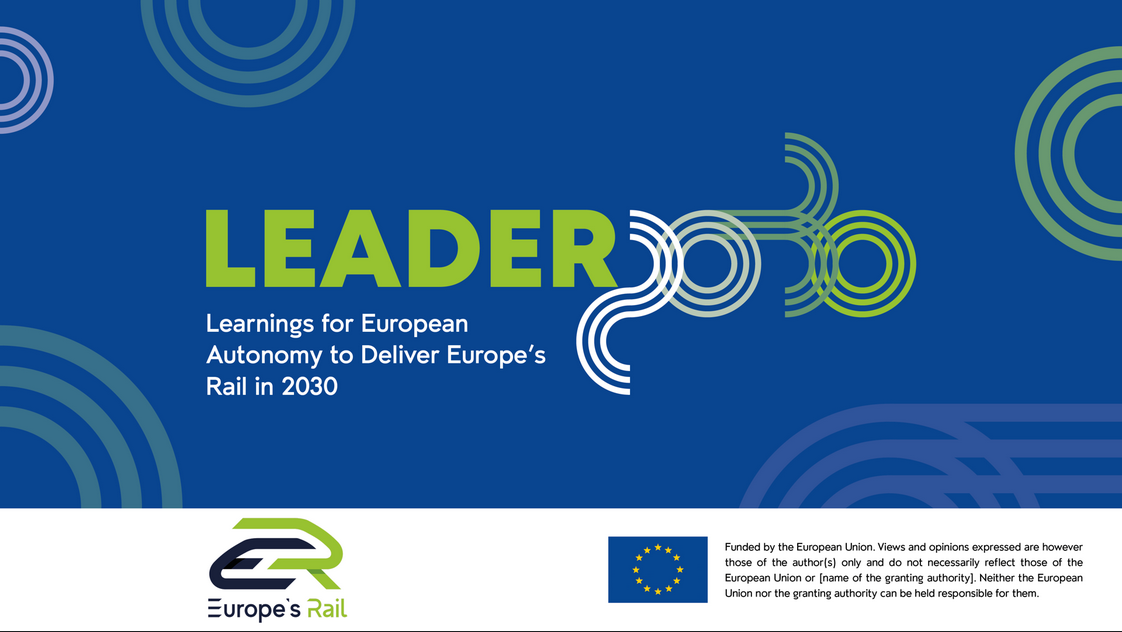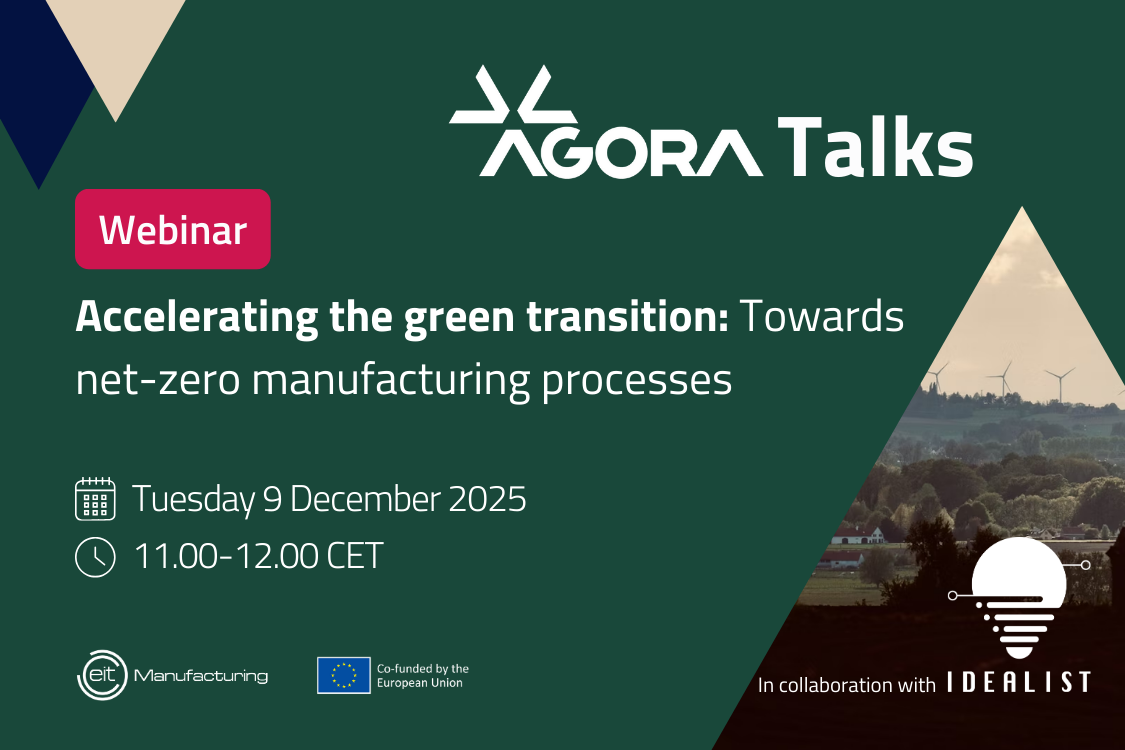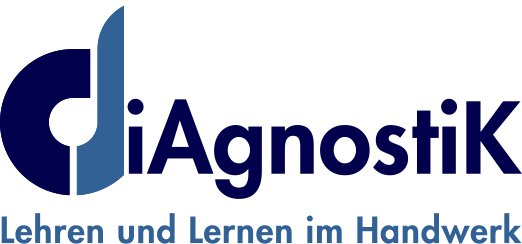As a partner in the EU IDEALIST Project, we invite GKZ Freiberg e.V. companies and innovative players to work together to solve specific challenges facing the manufacturing industry – quickly, focused and entirely online. On 1–2 April 2026, we will bring together industrial companies with technology-driven start-ups, SMEs, research institutions, technology centres and EDIHs to work in teams on real-world challenges from three key ecosystems: energy-intensive industries, aerospace/defence and mobility/automotive. Whether you are a company with an acute manufacturing problem or an organisation that can offer a solution using advanced technologies, this Hack&Match is your chance to build new partnerships, develop concrete solutions and network across Europe.
How does it work? As a challenge provider, you can submit your challenges until 13 February 2026; as a solution provider, you can apply for the published challenges between 16 February and 20 March 2026. The joint kick-off will take place on 1 April, followed by intensive collaboration sessions and the presentation of all solutions to a jury on 2 April – the best teams will be honoured at an award ceremony on 15 April 2026.
Participation is free of charge for challenge providers and an excellent opportunity for solution providers to showcase their expertise, attract potential customers or partners, and position themselves early on in European value chains.
Interested? You can find more information here.

The EU LEADER 2030 project, in which GKZ is a partner, aims to strengthen the resilience and strategic autonomy of European supply chains for the rail industry, particularly with regard to raw materials, components, and key technologies. Through vulnerability analyses and concrete industry- and policy-oriented recommendations for action, the project aims to establish European rail supply systems that are more robust and capable of innovation. This includes securing raw materials. To this end, the GKZ has already compiled the report “Forecast for autonomy, bottlenecks and gaps for *Europe's Rail 2030 raw material supply.”
On this basis, recommendations have now been derived for greater raw material and technology sovereignty. The LEADER 2030 Newsletter #5 informs you about recommendations for greater resilience and strategic autonomy of European supply chains in the report “Intelligence Analysis And Recommendations to Deliver Europe's Rail 2030.” The report is accompanied by an online consultation running until February 28, 2026, during which you can view the report and make further recommendations for greater raw material and technology sovereignty. Since many components and technologies are cross-sectoral, as is raw material security per se, it is worthwhile to review the report and make recommendations for your own portfolio.
Click here for the newsletter and online consultation:
*Europe's Rail 2030 Master Plan is a strategic R&I roadmap from the European partnership Europe's Rail for transforming the rail system in line with the EU's climate and digital goals. It specifies which technological, digital, and operational innovations are to be developed and demonstrated on a large scale by 2030 in order to achieve greater capacity, reliability, interoperability, and cost reduction in the European rail system (including doubling high-speed traffic, large-scale automation, and strengthening freight transport).
Over 100 participants of the Raw Materials Week side event co-hosted by EuroGeoSurveys and the European Technology Platform for Sustainable Mineral Resources - GKZ holds membership - , who helped to make it a resounding success. The event brought together geological surveys, industry, research organisations, EU institutions, and financial actors – an audience that reflects the broad community needed to unlock Europe’s mineral raw materials potential. The event concluded with a clear message: Europe can secure a sustainable raw materials future, but this depends on systematic, dramatically increased investment, stronger communication, deeper collaboration, and coordinated knowledge. Financing: The message that echoed throughout the day. From the opening session on financing to the final panel on research and innovation, one message came through consistently: Europe needs to unlock funds to fully develop its raw materials potential. Read full article here.

We are delighted to share the latest Newsletter from the EU HORIZON IDEALIST project with you, in which GKZ is participating as a partner alongside eight other EU clusters. Over the past months, our community has continued to grow, exchange and innovate, generating new momentum across our three industrial ecosystems. In this issue, we look back at the activities that have shaped this period and highlight the progress, collaborations and insights driving the next steps of the IDEALIST journey. IDEALIST strengthens the resilience of SMEs in mining, energy-intensive sectors and the chemical industry, among others, through strategic foresight, B2B and partner finding for concrete problem solving via networked learning formats.
Photo: WACKER Chemie

A webinar hosted by AGORA Talks in collaboration with the Expert-to-expert webinars of the IDEALIST project:
9 December, 11:00-12:00 CET
Registration link: https://agora-eitmanufacturing.eu/meeting/6928167e9d64c1.306238456928167e9d6538.501246436928
Sharing latest advances, technologies and practical use cases to decarbonise European industry, from the factory floor to the supply chain, we will be joined by four expert panelists:
- Vincent Stepputat, Co-founder and CEO at Plasmotion.
- Dr. Ruben Alfonso Casillas Pacheco, Founder at Fungarium.
- Dr. Josef Glass, COO at CO2BioClean.
- Jasper Koen, COO at Mavarick AI.
The agenda includes four speakers, which will introduce innovative net-zero technologies.
- Dr. Ruben Alfonso Casillas Pacheco, Founder at Fungarium. Fungarium produces mycelium-based materials from biomass residues to replace styrofoam insulations with carbon-negative material.
- Dr. Josef Glass, COO at CO2BioClean. CO2BioClean helps CO2- emitting industries searching for technologies to reduce their carbon dioxide emissions by turning CO2 into biopolymers.
If you'd like to express your interest in a bilateral meeting with one of the speakers, please fill this form.
Background: The expert-to-expert webinars are part of the IDEALIST project, funded by the EU, supporting SMEs in energy-intensive industries, aerospace, defense, and transport to build resilience.”

MOSAIC INNOVA, a Coordination and Support Action funded by HORIZON Europe, will run for 12 months. Its mission is to strengthen Europe’s innovation ecosystem around deep tech and critical technologies, while fostering sustainability, circularity, and industrial resilience across Europe. Main objectives of MOSAIC INNOVA are to
• Reduce fragmentation between regional and national innovation ecosystems.
• Foster cooperation between regions with different levels of innovation performance.
• Promote the exchange of best practices and knowledge transfer.
• Engage companies, clusters, research centres, and public administrations through communication, dissemination, and exploitation activities.
The project includes a European consortium committed to sustainable innovation: ISMC the Iberian Sustainable Mining Cluster, the International Center for Advanced Materials and Raw Materials of Castilla y León ICAMCyL Foundation, the Bulgarian Industrial Cluster Srednogorie, and Germany´s Geokompetenzzentrum Freiberg e.V.
Aim of MOSAIC INNOVA: Small- and medium-sized enterprises (SMEs) and start-ups focused on critical and deep technologies are crucial to enhancing value chains in digital innovation and clean technologies. The project will support them in transitioning to Industry 5.0 and foster an innovation ecosystem. The project will establish an excellence hub for deep-tech innovation, promoting knowledge exchange and technology transfer among partners. It involves local, regional, and national stakeholders to improve coordination and create better synergies between EU funds that promote resilient innovation and a circular economy. The project will summarise ecosystem actions and guide future developments, including stakeholder mapping, selecting four deep-tech companies, and analysing EIC Accelerator-certified entities applying for the Plug-in scheme.
GKZ is responsible for the following tasks: identifying, integrating, and supporting the most promising deep-tech enterprises within the MOSAIC project. Its role begins with establishing selection criteria and coordinating the process to identify companies with strong innovation potential, market readiness, and strategic value for the ecosystem. Once the most suitable enterprises are chosen, GKZ oversees their integration into the MOSAIC network, ensuring smooth collaboration and continuous evaluation to strengthen their innovation capacity. In addition, GKZ provides tailored support regarding funding and investment opportunities, helping these companies access suitable financial instruments for their business development. Through these combined efforts, GKZ acts as a central facilitator, ensuring the selected enterprises are effectively connected, supported, and empowered to contribute to the broader goals of the MOSAIC ecosystem.
Attention solution providers: The IDEALIST project is seeking energy efficiency solutions for the following four challenges.
You can also submit your own challenges and promote them via Hack&Match. The target group is tech-savvy SMEs, start-ups, researchers, technology centres, EDIHs, digital innovation centres, accelerators and other similar scale-up organisations. More Info
Exploring technology loops and raw material supply schemes in chemical and rail industry. IDEALIST’s Learning Expeditions (LEX) support small and medium-sized enterprises (SMEs) to adapt to current and future challenges by identifying technological solution providers, and connecting to alternative business partners along value chains and innovative collaboration partners for material development. IDEALIST covers the three key industry sectors: Energy Intensive Industries, Aerospace & Defence, as well as Mobility, Transport & Automotive. Get connected with SMEs of the region as well as from the IDEALIST network. The main target groups of this two day event are SMEs interested or active in the field of raw material and feed stock supply, technologies for circularity and decarbonisation of processes, and innovative solutions in material development or digital solutions for chemical R&D/production processes. Please note that the language of the conference is English and the participation in the matchmaking activity is voluntarily. Day 1 – Conference Day: a full day of expert lectures and networking activities to get in touch with potential alternate suppliers, novel solution providers and inspiring experts from the seven European project partner countries and ecosystems to enlarge your own network, acquire new knowledge and learn about best practices. You may also benefit from startup pitches, B2B matchmaking and a ‘Walk & Talk’ in the vineyards. Day 2 – Site Visit Wacker Chemie: we take you to one of the major German production sites for silicon-based chemicals and materials operated by Wacker Chemie AG in Nünchritz. Main products are some 200 different silicones, pyrogenic silica and hyperpure polycrystalline silicon for the solar industry as well as silicone adhesives and sealants. The production site is a prime example for low-waste and energy-efficient production pioneering a drone project to identify energy and heat losses in the insulation. Find out more info and about registration here
25.5.2025: EU HORIZON IDEALIST Project Learning Expedition to Katowice | 12.06.-13.06 | Katowice, Poland
Physical meeting in Katowice - one of the most innovative industrial centers in Central Europe. On the agenda: practice-oriented workshops on digitalization, industry of the future and drone technologies as well as exclusive site visits. The GKZ is offering two travel vouchers for participating companies. Further information on the event
This event will connect stakeholders from Partnership countries, offering a platform for networking and building strategic alliances in preparation for upcoming EU funding calls and RM Partnership. International Partnership Development: Facilitating interaction and collaboration with R&I stakeholders Partnership countries to expand the Raw Materials Research and Innovation connections. EU Funding Opportunities: Creating opportunities for participants to identify and secure new partners for applications to upcoming EU funding calls (e.g., Horizon Europe), as well as for future Co-funded Raw Materials Partnership. Academia-Industry Synergy: Bridging the gap between academia and industry by offering a space for knowledge exchange, showcasing expertise, and presenting innovative ideas or challenges. Participants will have the chance* to pitch their areas of interest, specific project concepts, or problems requiring collaborative solutions, thereby promoting mutual awareness and potential collaborations. *(subject to availability)
For more information see here